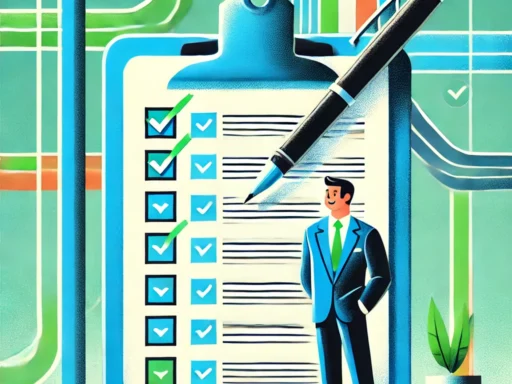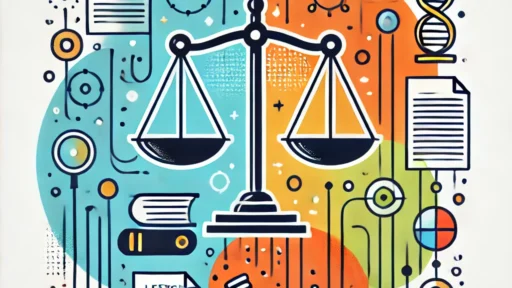In the legal world, written depositions offer a powerful tool for gathering testimony without the need for in-person appearances. This method allows deposition attorneys to craft precise deposition questions and receive detailed answers, streamlining the discovery process while saving time and resources.
Mastering the art of written depositions can significantly impact the outcome of a deposition lawsuit. By understanding the nuances of formulating effective written questions and deposition strategies, legal professionals can uncover crucial information and build a strong foundation for their arguments. This article delves into deposition techniques and best practices for optimizing written depositions, ensuring every question serves its purpose and every answer adds value.
Overview of Written Depositions
Written depositions, also known as depositions upon written questions (DWQs), serve as integral tools in pre-trial discovery. Legal professionals submit a series of meticulously crafted questions to witnesses, who respond under oath.
Unlike oral depositions, written depositions don’t require the presence of attorneys or court reporters during questioning. This method offers efficiency and cost-effectiveness, particularly in complex cases with wide geographic implications. It involves witness management and the strategic use of deposition exhibits to elicit detailed testimony.
In written depositions, both parties agree on the questions that witnesses will answer. These questions are submitted in a specific order, starting with the direct examination by the party who noticed the deposition. They subsequently include cross-examination, redirect, and recross questions. Each phase mirrors the structure of oral depositions, ensuring thoroughness and adherence to deposition procedural rules.
Legal frameworks governing written depositions vary by jurisdiction. Federal courts follow Rule 31 of the Federal Rules of Civil Procedure, while state courts adhere to their procedural deposition rules. These frameworks ensure consistency and fairness in gathering testimony. By providing a structured approach, they allow attorneys to gather relevant information effectively to build their cases.
Importance of Effective Testimony
Effective testimony in written depositions (deponent) helps build a strong legal foundation and influences case outcomes significantly. Optimizing testimony through clear, targeted questions reveals key information efficiently.
Legal Relevance
Effective testimony ensures all relevant legal facts surface. Each response provides crucial evidence and aligns with legal standards, reducing ambiguities. Written questions, when precise and comprehensive, eliminate misunderstandings and preserve the factual integrity of the case. Legal teams use these responses to navigate intricate legal issues, supporting their arguments clearly and conclusively.
Case Outcomes
Strong testimony, achieved through meticulous question crafting, dramatically impacts case outcomes. Detailed, accurate responses help build a compelling narrative and uncover critical evidence.
Well-structured depositions clarify the angles of the case, bolster the credibility of witnesses, and directly influence judicial decisions. Case resolutions often hinge on the quality of written depositions, determining the strength of the presented arguments, and ultimately securing favorable judgments.
Strategies for Mastering Written Depositions
Effective written depositions require strategic planning and clear communication to gather valuable testimony. Precise techniques help formulate targeted questions, ensuring comprehensive and relevant responses.
Preparing Thoroughly
In-depth preparation ensures effective written depositions. Lawyers must familiarize themselves with the case details, relevant documents, and potential witness testimonies. Identifying key facts and conflicts in advance allows for more precise questions.
Understanding the witness’s background, role, and involvement provides context and aids in crafting more relevant inquiries. This is crucial in the context of the ethics of lawyers, where a confidentiality lawyer ensures that all information is handled with the utmost respect for legal and ethical standards.
Crafting Clear Questions
Clear, concise questions lead to better testimony quality. Each question should have a specific purpose and focus, avoiding ambiguity. Open-ended questions can elicit detailed responses, while closed-ended questions narrow down facts.
For instance, instead of asking, “What happened?” specify, “Describe the events on March 3, 2023, at the XYZ warehouse.” This clarity ensures responses directly address critical aspects of the case and reduce the need for follow-up clarifications.
Common Challenges and Solutions
In the world of written depositions, common challenges often arise that can hinder the collection of effective deposition testimony. Identifying these challenges and knowing how to address them ensures a smoother process and more useful outcomes.
Addressing Ambiguities
Ambiguities in written questions can lead to unclear or incomplete responses. Ensuring clarity in phrasing minimizes confusion. Define technical terms and avoid using jargon unless the respondent is familiar with it.
For example, instead of asking, “Describe the incident,” specify, “Describe what happened during the car accident on January 12, 2023, at the intersection of Main St. and Elm St.” This approach prompts specific, detailed answers.
Managing Objections
Objections can disrupt the flow of collecting testimony through written questions. To manage objections, it’s crucial to phrase questions within the bounds of legal standards and relevance. If a question is likely to draw an objection, rephrase it to adhere to legal guidelines without sacrificing the importance of the information sought.
For instance, instead of asking a potential deposition objectionable question like, “Isn’t it true that you were negligent during the incident?” rephrase to, “Can you describe your actions during the incident and any precautions you took to ensure safety?” By carefully crafting questions, the chances of objections and the need for follow-up are reduced.
Examples of Successful Written Depositions
Examining case studies reveals how strategic written questions can lead to impactful deposition transcription, showcasing the advantages of this method in legal proceedings.
Case Study 1
In a corporate litigation involving contract disputes, the plaintiff leveraged written depositions to gather significant admissions. By crafting direct questions focusing on the terms of the agreement and communication records, the legal team obtained key admissions about the defendant’s non-compliance with contract stipulations.
These responses strengthened the plaintiff’s arguments, minimizing the necessity for lengthy oral depositions and reducing overall case costs.
Case Study 2
A medical malpractice case utilized written depositions to unveil crucial details about the defendant’s physician’s procedures. The plaintiff’s legal team designed specific questions addressing the standard of care and documentation practices.
Through precise inquiries, they extracted admissions on record-keeping lapses and deviations from standard protocols. These answers proved instrumental in the court’s assessment of negligence, showcasing the efficacy of well-structured written depositions videographers in complex medical cases.
Simplify Your Deposition Process with BlueNotary’s Reliable Notarization Services
Mastering written depositions is essential for legal deposition professionals aiming to gather efficient and effective testimony. By focusing on clear communication and thorough preparation, they can significantly impact case outcomes.
Ensure your remote deposition documents are authenticated and legally binding with BlueNotary’s secure and efficient online notarization platform.
Streamline your legal process and ensure the reliability of your documents. Explore how BlueNotary can support your written depositions with trusted notarization solutions. Visit BlueNotary today to learn more about enhancing your legal strategy with secure, efficient notarization. BlueNotary: Your partner in achieving effective and impactful legal outcomes!
Frequently Asked Questions About Written Depositions
Q1. What is a written deposition?
A written deposition involves submitting written questions to a witness, who then provides written answers under oath. This method allows for a structured and detailed collection of testimony.
Q2. How do written depositions differ from oral depositions?
Unlike oral depositions, written depositions are conducted entirely through written questions and answers. This can be beneficial for clarity and precision, allowing both parties to thoroughly consider their questions and responses.
Q3. What are the benefits of written depositions?
Benefits include allowing time for thoughtful responses, reducing the pressure of live questioning, and providing a clear, concise record of testimony. They are also useful when witnesses are unavailable for in-person depositions.
Q4. How should one prepare for a written deposition?
Deposition preparation involves carefully crafting clear and relevant questions, reviewing all pertinent case documents, and anticipating potential responses. It’s also important to coordinate with legal counsel to ensure the questions align with the case strategy.
Q5. What strategies can enhance the effectiveness of written depositions?
Strategies include focusing on specific facts, avoiding overly broad questions, ensuring clarity and simplicity in language, and following up on any ambiguous answers. Reviewing the written responses thoroughly and using them to inform further legal actions is also key.








